French Edition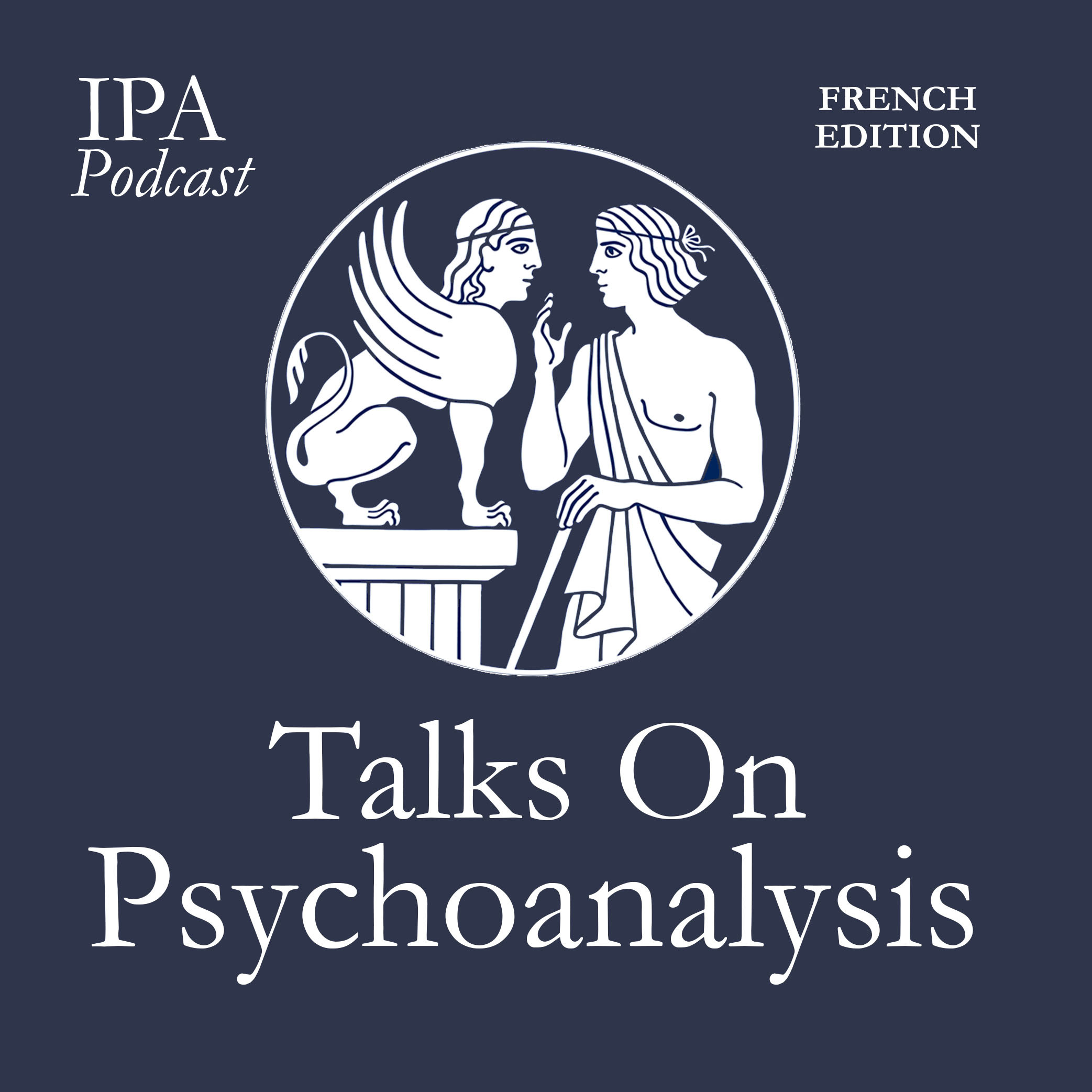 |
German Edition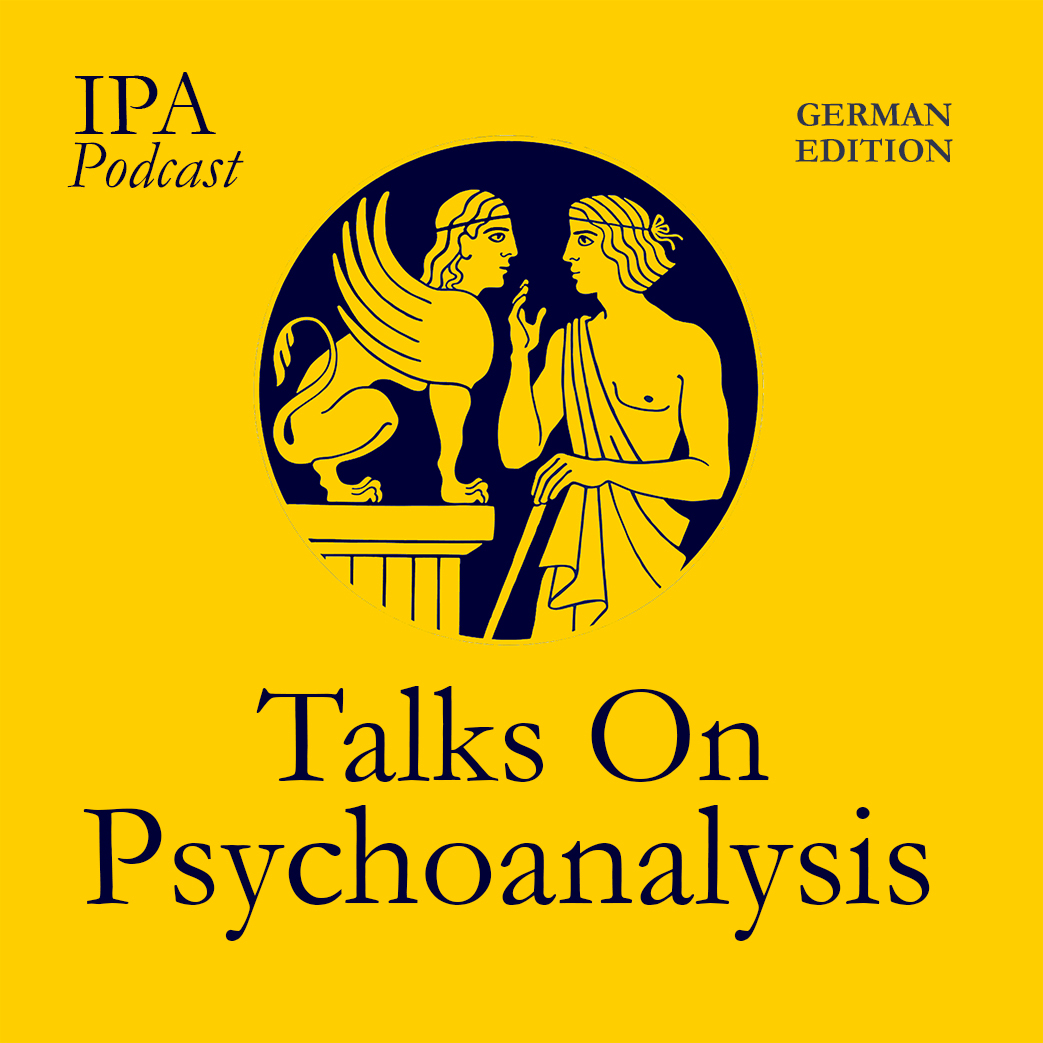 |
Spanish Edition |
Italian Edition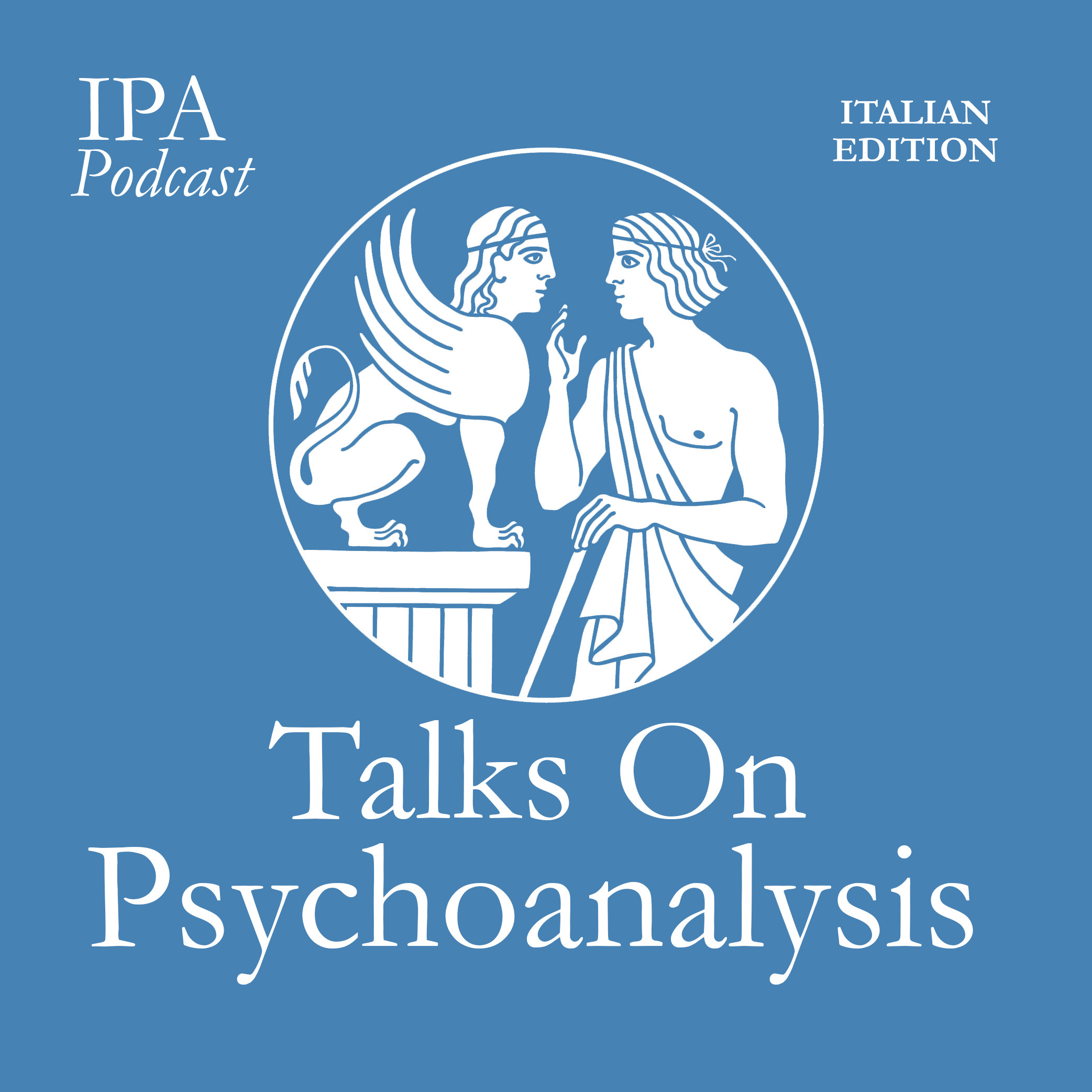 |
Japanese Edition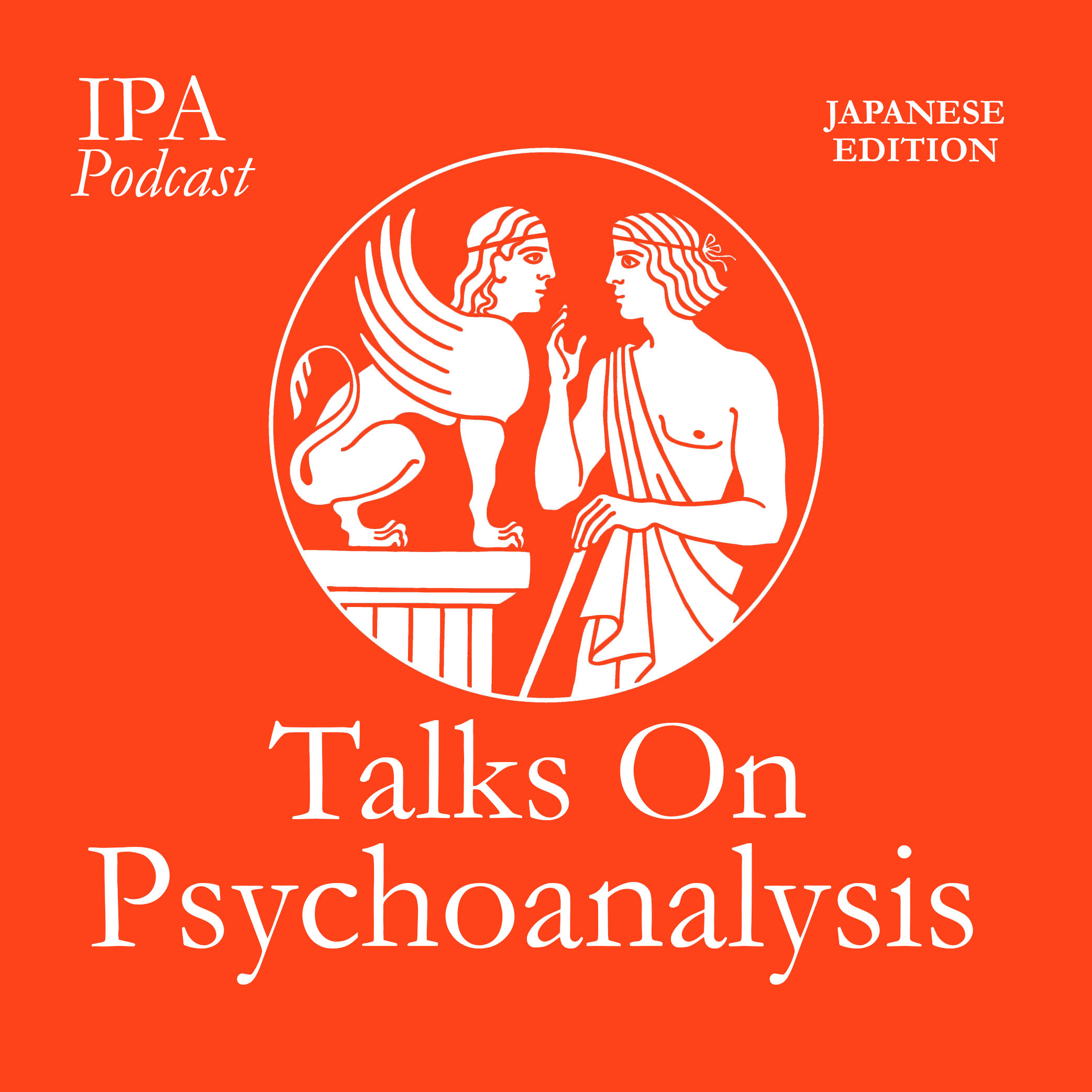 |
Portuguese Edition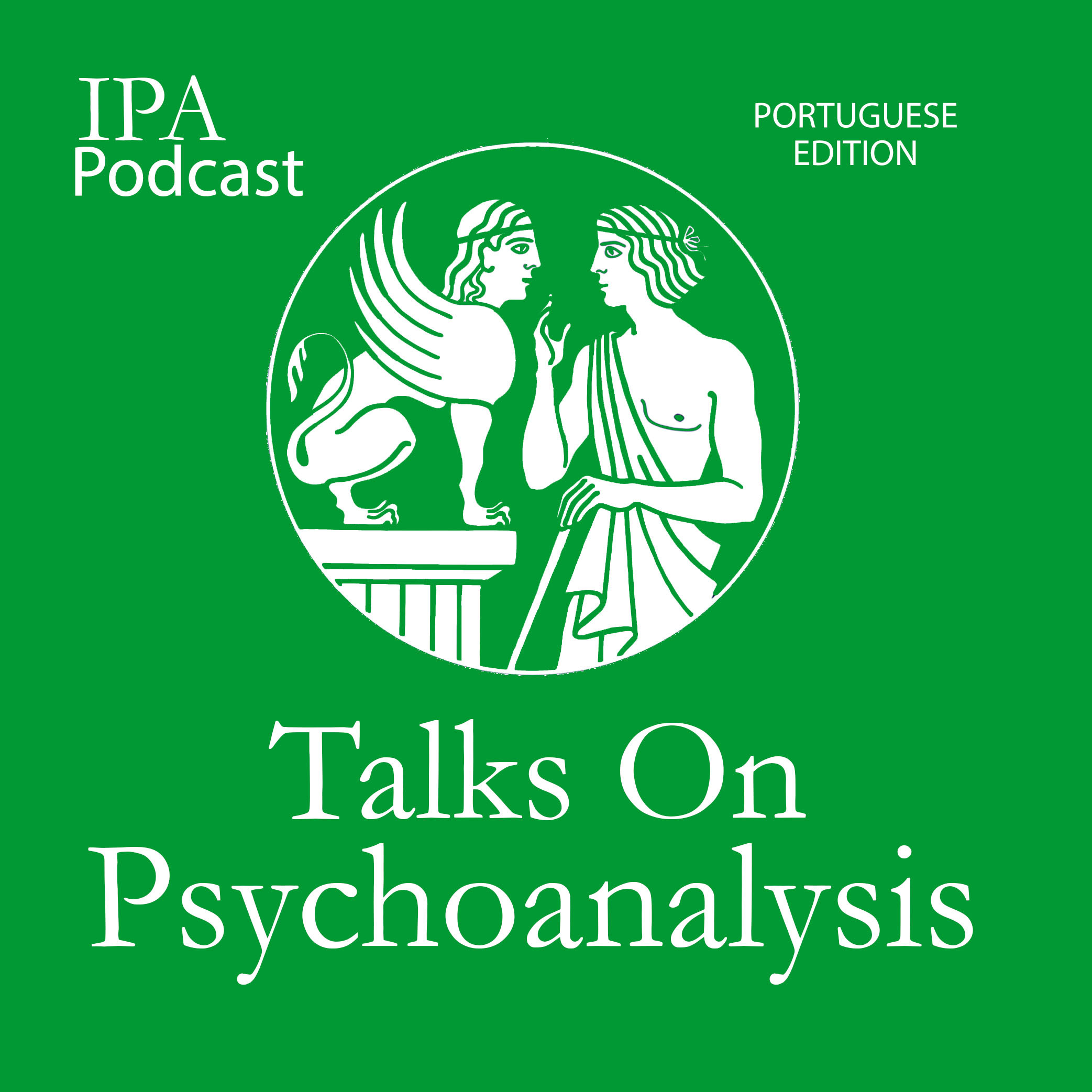 |
Episodes
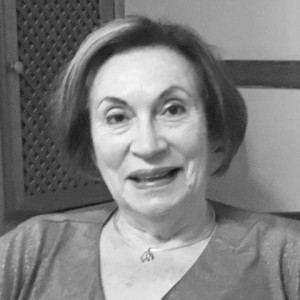
Monday Jan 18, 2021
Monday Jan 18, 2021
In this episode, in collaboration with the IPA Publications Committee, chaired by Gabriela Legorreta, we hear from Ilany Kogan who will be speaking about her new book Narcissistic Fantasies in Film and Fiction - Masters of the Universe. Here she studies narcissistic fantasies from a psychoanalytic perspective through the analysis of various protagonists in literature and the performing arts. One of the author's main interests is the narcissistic desire to be "Master of the Universe", a god-like, omnipotent and immortal figure. Although this wish is a universal propensity of early origin, it is also relevant to the identification with narcissistic leaders in the modern world.
Ilany Kogan is a Training and Supervisory Analyst in the Israel Psychoanalytic Society. She is one of the founders of The Psychotherapy Centre for the Child and Adolescent in Bucharest, Romania. She worked as supervisor for the IPA Study Group in Istanbul, Turkey and currently supervises in in Germany and Romania. For many years she also worked with the offspring of Holocaust survivors and published extensively on this topic. In 2003 she was awarded the Elise M. Hayman Award for her studies on the Holocaust and Genocide. She also received the Sigourney Award for lifetime achievement in her work, in 2016.
Narcissistic Fantasies in Film and Fiction - Masters of the Universe.Published April 17, 2020 by Routledge, 178 Pages.
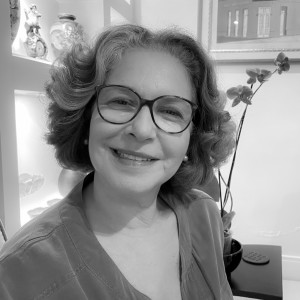
Monday Jan 11, 2021
Monday Jan 11, 2021
In this podcast we hear from Débora Regina Unikowski about “The baby on the couch”. Here she shares insights about her work with babies and parents, and how this helps us better understand ‘the baby’ within the mind of the adult. These findings provide an illuminating framework for working with patients during the Pandemic. “The baby on the couch” is also the title of her course offered at the Psychoanalytic Society of Rio de Janeiro in 2018, which was also presented at the XXVII Brazilian Congress of Psychoanalysis in 2019.
Débora Regina Unikowski, born in Porto Alegre, is a Training, Supervising, Child and Adolescent psychoanalyst at the Psychoanalytical Society of Rio de Janeiro, and current Director of the Institute for Teaching Psychoanalysis. Her interest in babies and the beginnings of mental life goes back to her internship at the Unité des Petits at the Fondation Rothschild in Paris working with Myriam David, where she observed young at risk children, in the prevention of autism and childhood psychosis. She also worked with pregnant women in Venezuela and participated in the Action-Formation research conducted by Serge Lebovici, observing and treating mothers and babies in a Child Mental Protection Center. Now back in Brazil, in addition to working in private practice in Rio De Janeiro, Débora also disseminates psychoanalysis among health and education professionals.
Some published works:
UNIKOWSKI, Débora Regina. Alicerces da maternidade: função continente da observação psicanalítica e do pediatra. In: ZORNIG, Silvia Maria Abu-Jamra; ARAGÃO, Regina Orth (Org.). Nascimento: antes e depois, cuidados em rede. Curitiba: Honoris Causa, 2011. p.239-245.
UNIKOWSKI, Débora Regina. The development of the maternal feeling in child analysis: Ana and Diana. In: LARTIGUE, Teresa; VARELA, Olga (Ed.). Gender and psychoanalysis: clinical contributions. Aguascalientes [México]: Architecthum Plus, 2013. p.45-50.
UNIKOWSKI, Débora Regina. Desenvolvimento da função simbólica e "analisabilidade". Psicanalítica, Rio de Janeiro, v.17, n.1, p.55-62, 2016.
UNIKOWSKI, Débora Regina. O bebê no divã: reflexões sobre a clínica psicanalítica na primeira infância. Primórdios, Rio de Janeiro, v.5, n.5, p.47-57, 2018.
This episode is available also in Portuguese
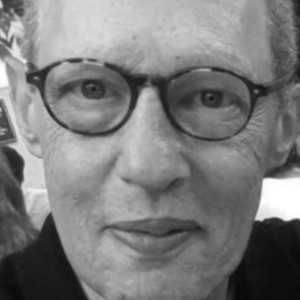
Monday Jan 04, 2021
Monday Jan 04, 2021
Leopoldo Bleger left Argentina in 1976, where he trained as medical doctor and psychiatrist, and since then he lives in Paris. He is a «supervisor analyst» of the French Association (Association Psychanalytique de France). He has published several papers on the work of Melanie Klein, psychoanalysis in Río de la Plata (Argentina and Uruguay) and on problems of methodology in psychoanalysis. He is member of the EPF (European Psychoanalytic Federation) Working Party on Specificity of the psychoanalytic treatment today. He was General Secretary of the European Federation (2012-2016) and President of his society (2017-2019).
A first version of this paper was read in the Extraordinary Symposium of EPF (European Federation) in November 2017. This Symposium was organized to discuss the vote of the change of the number of sessions for training analysis, a decision voted by IPA in July 2017, a decision strongly resisted by many European societies. It was published afterwards in a book edited by Alberto Cabral and Abel Fainstein, On Training Analyses. Debates, in 2019.
This episode is available also in French and Spanish

Wednesday Dec 16, 2020
Wednesday Dec 16, 2020
In this episode we’ll listen to Andrea Marzi on Some basic points on Psychoanalysis and the Internet. Actually, it’s not only psychoanalysis which reads the multifaceted nature of virtual reality, but also the reverse, where cyberspace also affects and influences seminal reflections about psychoanalysis itself and the virtual space of the mind. Psychoanalysis needs to develop an enquiry into the nature of virtual reality and the world of informatics and the new media. Together with a profound reflection from cyberspace about psychoanalysis itself and the “virtual spaces” in the mind, their (possible) existence and meaning, their role within the setting, and the consequences in the analytic field.
Andrea Marzi MD, is a psychiatrist and psychoanalyst with a PhD in Medical Ethics. He is a full member of the International Psychoanalytical Association, Italian Psychoanalytical Society and an active member of the American Psychoanalytic Association, holding in these fields several national and international functions in groups and committees. He is an IPA Member of the Task Force on Remote Analysis in Training and visiting Fellow at the University of Cambridge (UK). He worked in the Department of Forensic Psychopathology and has been a former Professor of Developmental Psychology at the University of Siena. He is also Supervisor in institutions and the NHS, and has published several dozens of scientific articles in national and international journals, as well as many books.
Psychoanalysis, Identity, and the Internet,Published September 19, 2016 by Routledge.
This episode is available also in Italian

Tuesday Dec 08, 2020
Tuesday Dec 08, 2020
In today’s episode, we’ll listen to Gregorio Kohon’s work on “Monuments and Denials: Creating and Re-creating History”, that follows on from his book on Reflections on the Aesthetic Experience - Psychoanalysis and the Uncanny.
It is argued that denials are daily events at all levels of human existence. Denials can also work in a negative way: memories, for example, can create events that might have never occurred; even if not true, mnemic inventions may still make sense and become meaningful. Historical and religious monuments are a case in point. They are political statements which work through denials, not always representing historical “truth”.
Gregorio Kohon is a Training Analyst from the British Psychoanalytical Society. He lived in Australia, where he co-founded (together with Valli Shaio Kohon) The Brisbane Centre for Psychoanalytic Studies. He published No Lost Certainties to be Recovered; Reflections on the Aesthetic Experience - Psychoanalysis and the Uncanny, and Considering the Nature of Psychoanalysis. He edited The British School of Psychoanalysis - The Independent Tradition; The Dead Mother - The Work of André Green; and British Psychoanalysis - New Perspectives in the Independent Tradition. He edited, together with Rosine Perelberg, The Greening of Psychoanalysis, and co-authored with André Green, Love and its Vicissitudes. His works have been translated into many languages. He is also a poet and a novelist.
Reflections on the Aesthetic Experience - Psychoanalysis and the Uncanny,Routledge (2015).
This episode is available also in Spanish

Wednesday Dec 02, 2020
Wednesday Dec 02, 2020
This episode, Who's Afraid of the Impasse? Reflections about a Crossroads, stems from a clinical concern that the author has seen become more and more important during her practice as a psychoanalyst, appearing often in the clinical material of her colleagues and those she supervises, as well as in her own clinical experience.
Many times, the Impasse tends to go unnoticed. It gets confused with other clinical phenomena, which makes it necessary to illuminate it in a special way. Its approach and complex technical implementation depends on it. In this episode she tries to look at the topics mentioned, emphasizing the necessary diagnosis and the vicissitudes of its approach.
Maria Paz de la Puente is a Peruvian psychoanalyst living in Lima, Peru. She is a Didactic member of the Peruvian Society of Psychoanalysis (SPP), FEPAL and the IPA. She was an IPA board member, as well as an SPP Vice President on two occasions. She also teaches and supervises at her institution, the SPP, and is currently working full time doing clinical work as well community activity and work.
Link to the paper https://drive.google.com/file/d/1Q07NTx1S2bOpRUDY0O_u2jSWjoc-DSI-/view?usp=sharing
This episode is available also in Spanish
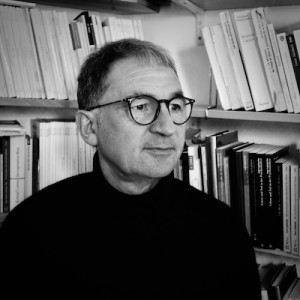
Thursday Nov 26, 2020
Thursday Nov 26, 2020
In this episode Udo Hock will present his paper on the notion of “distortion” in psychoanalysis. He has been working for many years on this notion that has been neglected by post-Freudian authors: the “Distortion” or “Disfigurement”, “Entstellung” in German. In his podcast he will show that the term has the status of a fundamental concept in Freud's work. It characterizes the method, the metapsychological concepts as well as the technique of psychoanalysis which is in the tradition of Freud. It is a guideline not only for our clinical work, but also for our thinking on the Unconscious.
After studies in Berlin and Paris, Udo Hock worked as a psychoanalyst in private practice in Berlin. He is member of the Publications Committee of the IPA; member of the Scientific Committee of the Foundation "Jean Laplanche“ in Paris; translator and editor of the work of Jean Laplanche into German; coeditor of the German psychoanalytical journal “Psyche” and lecturer at the International Psychoanalytical University of Berlin. He has written many articles about the classical themes of psychoanalysis, as the concepts of “Drive”, “Time”, “Infantile Sexuality”, “Transference”, “Repetition”, “Cover Memory”- and on the work of Jean Laplanche. He is the author of the book “Thinking the Unconscious: Repetition and Death Drive“ published in German in 2012.
Link to the paper https://drive.google.com/file/d/1RONNz2lFwWuKvzyVS0AIL5ntF4bxEfTW/view?usp=sharing
This episode is available also in German and French
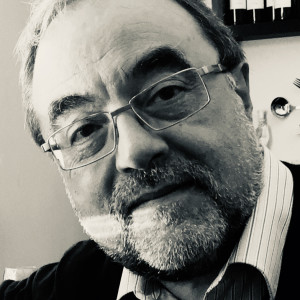
Thursday Nov 19, 2020
Thursday Nov 19, 2020
In this episode Luis Martin Cabré will show the influence that Ferenczi's thinking about the feminine and the child mind (especially in some of his clinical experiences and theoretical intuitions) had on the development of many of the concepts that Winnicott established in psychoanalytic thought, and which have endured to the present day.
Since, as in Winnicott's case, Ferenczi was practically excluded from readings and discussions among analysts for many years, the hypothesis is that psychoanalytic transmission is not only carried out from reflection and theoretical study but also on an unconscious level and transgenerational manner.
Luis Martin Cabré is past President and full member (with didactic functions) at the Asociación Psicoanalítica de Madrid (APM). He is full member of the Italian Psychoanalytic Society (SPI) and an accredited member as a child and adolescent psychoanalyst. He is also a full member of the Spanish Society of Psychiatry and Psychotherapy of Children and Adolescents, Founding member of the International Foundation "Sándor Ferenczi" and member of the European Editorial Board of the International Journal of Psychoanalysis and the American Journal of Psychonalysis. Further to this he is the European Representative on the IPA Board (between 2015-2019) and collaborating member of the Instituto Universitario de Salud Mental - IUSAM.
Link to the paper
https://drive.google.com/file/d/1lhGgJz7fwoX_yd6b39a7BFw09g0D0l3g/view?usp=sharing
This episode is available also in Spanish and Italian.
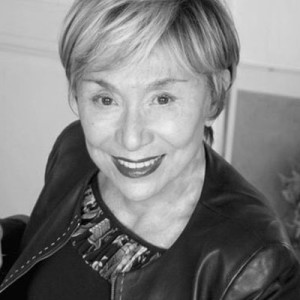
Wednesday Nov 11, 2020
Wednesday Nov 11, 2020
© photo J Foley/Opale
In today’s episode Julia Kristeva will comment on Ilse and Robért Barande’s report, presented at the 42nd Congress of French Speaking Psychoanalysis in 1982 with the title “Antinomies in the concept of perversion and paradoxes in its application to psychoanalytic theory and practice”. A new short version will be published in one of the next issues of the Revue Française de psychanalyse for which she has written the introduction. Indeed, she found this report to be “provocative, heavy-handed and of obvious interest in our contemporary times of pandemic and lock down”.
Madame Julia Kristeva is a prolific author, training psychoanalyst at the Psychoanalytic Society of Paris and emeritus professor at the University of Paris 7. Among many books we will only mention a few: Black Sun, A Trilogy; Female Genius: Hanna Arendt; Melanie Klein and Colette; Powers of Horror; Tales of Love; New Maladies of the Soul; Hatred and Forgiveness. Her last book, Dostoyevsky, came out in 2019.
This episode is available also in French
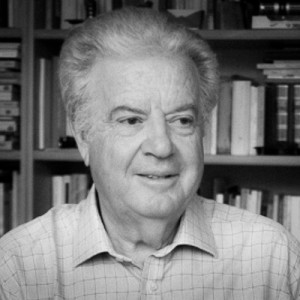
Thursday Nov 05, 2020
Thursday Nov 05, 2020
In this episode, Claudio Neri presents his article on "Vitality, Vitalism and Shame". Through a rich narrative, ranging from the memory of his encounter with Bion, to ethnopsychological studies on expressions of anger or joy, to the Myth of Anteo that shows the importance of contact with a safe and revitalizing object, Claudio Neri raises two questions: how can we distinguish natural vitality from exasperated vitalism? And what role does shame play in this presenting itself to others without the armor of one's own defenses?
If enthusiasm is contagious, it is possible, however, to observe how sometimes some individuals may not tolerate being close to a vital subject. The contagion effect, which emanates from the enthusiastic person, in fact puts them at risk of losing their balance. People who are depressed or very controlling, for example, may feel that the enthusiasm activates an aspect of themselves that they must strictly keep at bay.
What should the psychoanalyst finally do when the shame and the parade of embarrassment and fear are so intense as to prevent one of his patients from approaching vitalizing experiences?
Claudio Neri, MD, is Training and Supervising Analyst at the Italian Psychoanalytic Society, a founder member of the International Field Theory Association.
He is also a member of the the editorial board of the “European Journal of Psychotherapy and Counselling”; “Revue de Psychothérapie Psychanalytique de Groupe”; “Clínica y Análisis Grupal” and of the “Revista de Psicoànalisis de las Configuraciones Vinculares”.
He has published articles and books, primarily on the tecnique and theory of treatment. His work has been translated into six languages.
link to the paper https://drive.google.com/file/d/1LI_Qi9es_zCAPUc_uoFetrzy9-0XOf-i/view?usp=sharing
This episode is read by Brook Barbieri.
https://www.claudioneri.it
This episode is available also in Italian, Spanish, French.
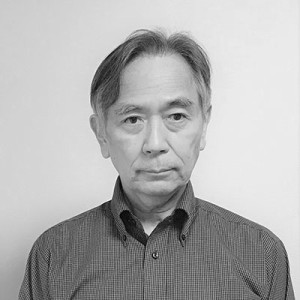
Thursday Oct 29, 2020
Thursday Oct 29, 2020
In this episode Dr. Kenichiro Okano displays how shame and social phobia could manifest differently between the Eastern and the Western countries, and investigates them from a psychoanalytical point of view. With his personal history of becoming a bicultural psychiatrist and psychoanalyst in the United States and in Japan, he considers that while passivity and non-action induced by shame can be misunderstood in Western culture, it can potentially exert some paradoxical power and influence, at least in the Japanese society. In its conceptualizations, the dissociation construct plays a central role, consistent with its research and clinical experience.
Dr Kenichiro Okano is a Japanese psychiatrist and psychoanalyst, and professor of Clinical Psychology at Kyoto University Department of Education. He is a training and supervising analyst in the Japan Psychoanalytic Society. He is the author of 26 books on psychoanalysis, dissociative disorder, and neurobiology. In 2016 he won The Japanese Psychoanalytical Association’s Distinguished Publications Award.
This episode is availablealso in Japanese

Friday Oct 23, 2020
Friday Oct 23, 2020
In this episode we’ll present the work of a psychoanalytical peer group. A “peer group” is made up of colleagues who choose to work together to explore a certain topic or to achieve a specific goal.
Sophia Group consists of five members from different republics that emerged after the dissolution of Yugoslavia. The goal of this group is to try to dream in the group and work all material out to be able to hold the group and use it as a container for various experiences that the members of the group have.
In this podcast, one of the members of the group introduces it with general remarks on goals and processes in the group. Next Dr. Giovanni Foresti talks about his experiences with the group as its organizational consultant. Last one to talk is Dr. Paolo Fonda who emphasizes his experiences with the dissolution of the Yugoslavia and war traumas that emerged from it. He also talks about how such groups can serve broader social purpose.
We hope in this way to show how group work can be used to help people overcome their differences and prevent bloody conflicts such as Yugoslavian one, and also trauma healing processes after such events.
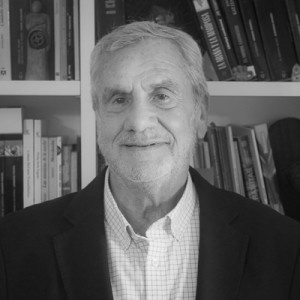
Tuesday Oct 13, 2020
Tuesday Oct 13, 2020
In this episode, Carlos D. Nemirovsky presents an excerpt from his latest book: “Winnicott and Kohut on Intersubjectivity and Complex Disorders. New perspectives for Psychoanalysis, Psychotherapy and Psychiatry”.
This book suggests that we need conceptualizations that encompass new clinical phenomena observed in present-day patients, considering that the traditional definitions of basic psychoanalytic notions are no longer comprehensive enough, due to the complexity of scientific developments within and beyond the psychoanalytic field. From this perspective, clinical practice with complex patients can particularly benefit from Winnicott and Kohut’s ideas, for these authors see each patient as unique, and are in direct contact with empirical facts.
Carlos D. Nemirovsky is a Training Analyst, Supervisor and President of the Buenos Aires Psychoanalytic Association. He is Professor of Psychoanalysis at the Institute of Mental Health, Full Member of the IPA and Member of the International Association for Relational Psychoanalysis and Psychotherapy. He is author of numerous articles and books and has published in the APdeBA journal Psychoanalysis, and online in www.aperturas.org and www.psicoterapiarelacional.es.
Intersubjectivity and Complex Disorders.New perspectives for Psychoanalysis, Psychotherapy and Psychiatry.Routledge, London, 2020.
This episode is available also in Spanish

Wednesday Oct 07, 2020
Wednesday Oct 07, 2020
In this episode, Marie-Thérèse Khair Badawi presents her paper: “Being, Thinking, Creating: When War Attacks the Setting and the Transference Counter-Attacks”.
This text, published in 2011 concerning the attack of the psychoanalytical setting in war conditions, has revealed the interest of many psychoanalysts during the Covid-19 pandemic which attacks also the setting. The questioning trying to find an issue in a situation of war where the psychoanalysts and their patients are facing the same trauma against the unpredictable which attacks the invariance of the setting, seems to be a similar problematic in these two traumatic states and … even maybe to many others!
Marie-Thérèse Khair Badawi PHD, is Training Analyst of the International Psychoanalytical Association, member of the European Psychoanalytical Federation, of the Paris Psychoanalytical Society, co-founder and first President of the Lebanese Association for the Development of Psychoanalysis, the first IPA study group in an Arab speaking country. She is Professor Researcher at Saint-Joseph University of Beirut. Author of numerous publications translated from French to several languages among which one german translation was selected and many published in the Revue Française de Psychanalyse and the International Journal of Psychoanalysis. She has studied in depth themes on war, trauma, incest and sexuality, specially female sexuality and sexual identity. Her PHD thesis "Le désir amputé” published at L'Harmattan, Paris, 1986, is considered by UNESCO as one of the first reliable studies on female sexuality in the Middle East.
This text has been published in ten different languages and the version you can listen to in the podcast has been reduced for privacy reasons. For a complete reading of the paper please refer to:
Badawi, M.-T. (2011). Being, Thinking, Creating: When War Attacks the Setting and the Transference Counter-Attacks. Int. J. Psycho-Anal., 92(2):401-409.
Badawi, M.-T. (2011). Être, penser, créer : quand la guerre attaque le cadre et que le transfert contre-attaque. Rev. Franç Psychanal, 75(4):1035-1043.
"Le désir amputé"L'Harmattan, Paris, 1986.
This episode is available also in French and Italian
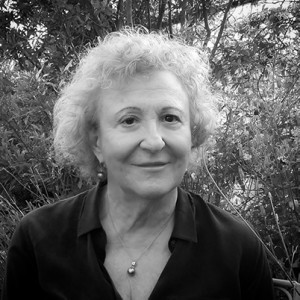
Tuesday Sep 29, 2020
Tuesday Sep 29, 2020
In this episode Irene Ruggiero explores the developmentof the subjectivation process with the aim of demonstrating how adulthood analysis of adolescent problems that have not been worked through constitutes an essential condition for reopening an unfinished subjectivation process. The re-elaboration of suspended adolescent dynamics in adulthood analysis re-ignites a process of spiral temporality, opening up the possibility of reconsidering both adolescent and childhood experiences in the double temporality established by psychoanalytic listening.
Irene Ruggiero, is a Full Member and Training Analyst of the Italian Psychoanalytical Society and of the International Psychoanalytical Association. She is Secretary of the National Commission for the psychoanalysis of children and adolescents, former Scientific Secretary and President of the Psychoanalytic Center of Bologna. She has actively participated in the scientific life of SPI, IPA and EPF, and is the author of numerous publications in the most important Italian and foreign Journals, as well as in collective volumes. Among her main areas of interest: the adolescence, the body and the analytical relationship. On these topics, she has recently edited two volumes: with Anna Nicolò, "La mente adolescente e il corpo ripudiato"; and, with Nicolino Rossi, "La relazione analitica".
Episode read by Danielle Mitzman, broadcast journalist.
Link to the paper https://drive.google.com/file/d/11Q0LTUpjUuGxqtgTBnpI7sbZVDIk1HxU/view?usp=sharing
Reference to the full paperRuggiero, I. (2015). Adolescent Dynamics in the Analysisof Adults and Reopening of the Process of Subjectivation. The Italian Psychoanalytic Annual, 9:7-24
La mente adolescente e il corpo ripudiato,(2016) Franco Angeli
La relazione analitica,(2016) Franco Angeli
This episode is available also in Italian
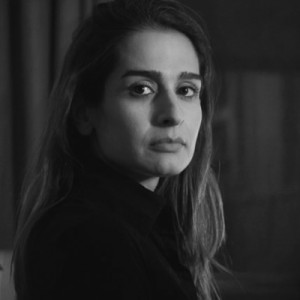
Wednesday Sep 23, 2020
Wednesday Sep 23, 2020
In this episode we will dive with Gohar Homayounpour into the tales of One Thousand and One Nights to bring a new articulation to the female Oedipus complex in contemporary Persia, allowing for the emergence of new possibilities of loving. Through a psychoanalytic textual analysis of the Nights, the author uncovers various archetypes of women that have been extinct from a more mainstream discourse, not only in Iran. The archetypes of Persian women populating Shahrazad’s tales night after night have been lost as sources of female identifications. The paper sets out to tell a story, and within it wishes to re-find a whole and integrated Shahrazad as an object of female identifications.
Gohar Homayounpour is an author and psychoanalyst and member of the International Psychoanalytic Association, American Psychoanalytic Association, the Italian Psychoanalytic Society, and the National Association for the Advancement of Psychoanalysis. She is the Training and Supervising psychoanalyst of the Freudian Group of Tehran, where she is also founder and former director. She has published various psychoanalytic articles and her book, Doing Psychoanalysis in Tehran, published by MIT Press in August 2012, won the Gradiva award and has been translated into French, German, Italian, and Turkish.
Link to the paper https://drive.google.com/file/d/1iV6w1CJEFY2D2OuPSauF15PbwBnxculw/view?usp=sharing
Doing Psychoanalysis in Tehran, MIT Press.
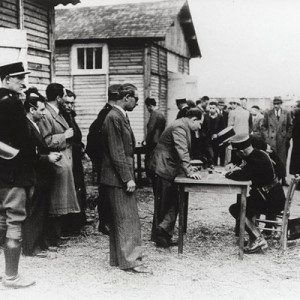
Tuesday Sep 15, 2020
Tuesday Sep 15, 2020
Image from the Holocaust Museum, Pithiviers internment camp in 1941.In 1942 all the inmates were deported to Auschwitz-Birkenau.
In this podcast Rosine Perelberg offers some reflections derived from her paper “Murdered Father, Dead Father: Revisiting the Oedipus Complex”, published in the International Journal of Psychoanalysis (in 2009), as well as from the last chapter of her book of the same title (in 2016). Rosine Perelberg suggests that in the Shoah one is confronted with the abolition of the law of the dead father. This refers to the murder of the dead father and the re-establishing of the tyranny of the narcissistic father. Based on her considerable knowledge of the literature on antisemitism, her background in history and social anthropology, as well as her own psychoanalytic writings, Rosine Perelberg advances her thoughts about antisemitism across the ages as well as in current times.
Rosine Jozef Perelberg is a Fellow, Training Analyst, and President of the British Psychoanalytical Society, Visiting Professor in the Psychoanalysis Unit at University College London, and Corresponding Member of the Paris Psychoanalytical Society. She was born in Rio de Janeiro, Brazil, where she completed her BSc in Humanities and undertook an MSc in Social Anthropology, before her PhD in Social Anthropology at the London School of Economics. She has written and edited 12 books. Psychic Bisexuality was awarded the 2019 American Board & Academy of Psychoanalysis Book Prize for Best Edited Book. In 1993 she was co-winner of the Cesare Sacerdoti Prize at the IPA Congress in Buenos Aires. In 2006 she was named one of the 10 Women of the Year by the Brazilian National Council of Women.
Link to the paper https://drive.google.com/file/d/1XgfYMuHHiM5a7H5ZfnsQcKcFYpOm-9i-/view?usp=sharing
Murdered Father, Dead Father: Revisiting the Oedipus Complex(The New Library of Psychoanalysis).
This episode is available also in French and Portuguese
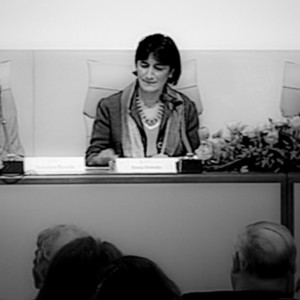
Sunday Sep 06, 2020
Sunday Sep 06, 2020
Link to the paper https://drive.google.com/file/d/17tUskQlP-KG6BYBwYFWKnRHlzwDq4jWf/view?usp=sharing
In today's episode Anna Ferruta presents an excerpt from her article published in 2014 in The Italian Psychoanalytic Annual entitled: “The Analytic Setting and Space for the other”.
Anna Ferruta is Psychologist, Full Member and Training Analyst of the Italian Psychoanalytical Society and of the International Psychoanalytical Association. She works as a psychoanalyst in Milan, Italy, specialising in the treatment of sever psychic pathologies and the psychodynamics of institutional working groups. She is a founding member of Mito&Realtà: Association for Therapeutic Communities. Other appointments have included Vice-Director of Psiche, Lecturer in Psychiatry at the University of Pavia, and consultant in the Neurological Institute C. Besta, in Milan. She is the author of several Italian and international publications.
Etude Op. 25 no. 4 in A minor - 'Paganini' comes from https://musopen.org
This episode is available also in Italian
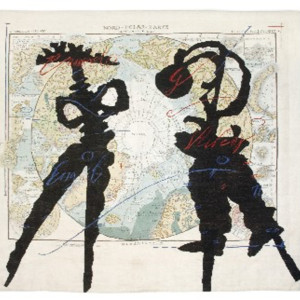
Monday Aug 31, 2020
Monday Aug 31, 2020
William Kentridge, North Pole Map, 2003
Racism and violence in pandemic times: a psychoanalytical point of view.A conversation between Fakhry Davids and Virginia De Micco
In this episode Fakhry Davids and Virginia De Micco begin with a reflection on the “Black Lives Matter” movement, suggesting a continuity between the inequalities of the past and those involved in societal racism today. They consider how such inequalities are internalized, suggesting that it results in one’s in-group identity being structured as an us-them link with an out-group, in which projective processes are heavily involved. Does the increased sense of vulnerability during times of pandemic produce greater pressure to project fear, danger, or ‘evil’ into the racial others – just at a time when their greater vulnerability is more evident?
Fakhry Davids, is a Training and Supervising Analyst of British Society, a member of the International Research Group Geographies of Psychoanalysis, a Board Member of PCCA (Partners in Confronting Collective Atrocities, www.p-cca.org) and Member of the Holmes Commission for Racial Equality, American Psychoanalytic Association.
Virginia De Micco, is a Full Member of Italian Society, a member of the International Research Group Geographies of Psychoanalysis, and a Board Member of the group PER (Psicoanalisti Europei per i Rifugiati) of the Italian Society.
Etude Op. 25 no. 4 in A minor - 'Paganini' comes from https://musopen.org
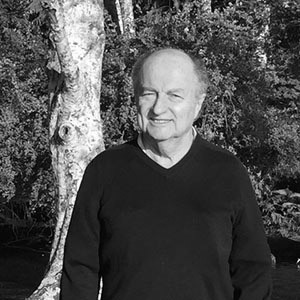
Monday Aug 24, 2020
Monday Aug 24, 2020
Link to the paper https://drive.google.com/file/d/1cKf5I7TgScLynhcPpcvkUetrHrdnez0r/view?usp=sharing
Denys Ribas is a psychiatrist, child psychiatrist and psychoanalyst. He directed for 8 years the «Revue Française de Psychanalyse» and was for 4 years the President of the Paris Psychoanalytical Society. He has collected a long experience as psychoanalyst in a day hospital for young children, some of whom was autistic. His interest in the death drive comes to him both from the experience of the psychic conflictuality and from his deepening of the specifically autistic problematic, in line with the contributions of Tustin and of Meltzer. He has also worked with Benno Rosenberg, conceiving drive fusion and defusion in their movements in neurosis, in borderline states as well as in psychosomatic states where the somato-psychic balance is disturbed.
Etude Op. 25 no. 4 in A minor - 'Paganini' comes from https://musopen.org
This episode is available also in French
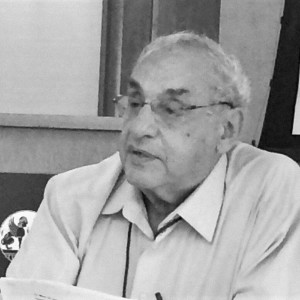
Monday Aug 17, 2020
Monday Aug 17, 2020
In today’s episode Roosevelt Cassorla will present his paper: “Fanaticism: Reflections based on phenomena in the analytic field”, recently published in the International Journal of Psychoanalyisis.
Roosevelt Cassorla is a Training Analyst for the Brazilian Psychoanalytic Societies of São Paulo and Campinas as well as a Full Professor of Medical Psychology at the State University of Campinas. He is a member of the Editorial Board of the International Journal of Psychoanalyisis and of other journals. He is a contributor to the IPA Inter-Regional Encyclopedic Dictionary of Psychoanalysis. He has published six books. His latest are The Psychoanalyst, The Theater of Dreams and The Clinic of Enactment and Suicide: Unconscious Factors and Socio-Cultural Aspects: An Introduction (in Portuguese). Cassorla also coordinates the Working Party "Microscopy of the Analytic Session" of the Brazilian and Latin America Psychoanalytic Federations. He received the 2017 Sigourney Award for Outstanding Achievement in Psychoanalysis.
Etude Op. 25 no. 4 in A minor - 'Paganini' comes from https://musopen.org
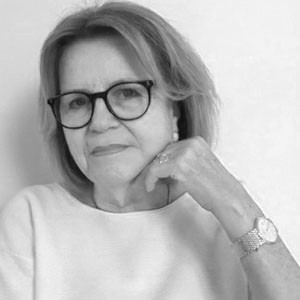
Monday Aug 10, 2020
Monday Aug 10, 2020
In today’s episode Cordelia Schmidt-Hellerau will present her talk titled “Driven to preserve self and object” where she eloquently investigates the structuring function of the object in tension with the subject and its drives; the role of the aggression as an intensified expression of a need; and her original term “Lethe”, describing the energy of these preservative drives.
Cordelia Schmidt-Hellerau, (PHD) is a Training and Supervising Analyst of the Boston Psychoanalytic Society and Institute, and the Swiss Psychoanalytic Society. She has published numerous papers and 3 books on metapsychology, clinical issues, and applied Psychoanalysis. Since 2017 she has been the Chair of the IPA in Culture Committee
Link to Paperhttps://drive.google.com/file/d/1L9hRbztqFt0sbTpMls7Jvih2U2mAyGAI/view?usp=sharing
Etude Op. 25 no. 4 in A minor - 'Paganini' comes from https://musopen.org
This podcast is also available in French and German
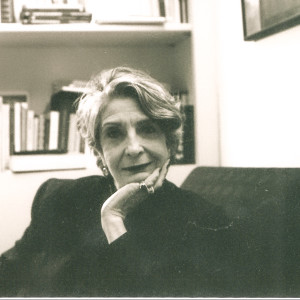
Tuesday Aug 04, 2020
Tuesday Aug 04, 2020
In today's episode we welcome Marilia Aisenstein who will talk about her upcoming book which will be published at the end of September 2020, titled Désir, douleur, pensée.
Marilia Aisenstein is a training analyst from the Hellenic Psychoanalytical Society and the Paris Psychoanalytical Society, of which she was also President. In 1992 she received the Bouvet Prize. She has been a representative on the Board of the IPA and also on its Executive Committee. She is currently European President of the New Groups Committee of the IPA and Deputy Secretary of the Congress of French Language Psychoanalysts.
Link to paper https://drive.google.com/file/d/1JAZ4TSeaN0ulP2WVzhJOgOXxwTRkxCuf/view?usp=sharing
Etude Op. 25 no. 4 in A minor - 'Paganini' comes from https://musopen.org
This podcast is also available in French
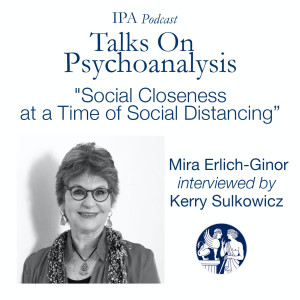
Tuesday Jul 28, 2020
Tuesday Jul 28, 2020
In this episode, Kerry Sulkowicz interviews Mira Erlich-Ginor about a unique experience realized during the time of COVID-19: a WhatsApp group of Israel Psychanalytic Society members that became a lively meeting place, evidence of the well-timed response to an existing need, and a series of Zoom meetings dedicated to working intensively on dreams, in the model of the Social Dreaming Matrix.
Link to paper Social Closeness at a Time of Social Distancing https://drive.google.com/file/d/1jaomh6r-tbELrMlRfcFt80tygohHuB8t/view
Link to the Orphaned Chairs and Couches PDF https://drive.google.com/file/d/1Z3_rnGK_WbB_MnJbUw4sieWEGS0Vaoxl/view
Kerry Sulkowicz is President-elect of the American Psychoanalytic Association; Clinical Professor of Psychiatry at New York University School of Medicine and Managing Principal, Boswell Group LLC.
Mira Erlich-Ginor is a Training and Supervising Analyst at the Israel Psychoanalytic Society; European Representative on the IPA Board (2015-2019); as well as Co-Founder and Secretary of PCCA: Partners in Confronting Collective Atrocities, the 2019 recipient of the Sigourney Award.
Introduction recorded by Andy Cohen Etude Op. 25 no. 4 in A minor - 'Paganini' comes from https://musopen.org
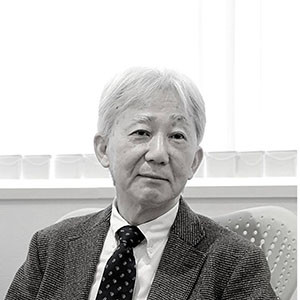
Monday Jul 20, 2020
Monday Jul 20, 2020
In this episode we explore the core psychoanalytic method and the differences between psychoanalysis and psychoanalytic psychotherapy.
Our presenter Dr Kunihiro Matsuki presents two methods relating to perceiving a patient’s unconscious, one linked to the idea of ‘evenly suspended attention’, the other in relation to “free-floating attention’.
Dr Kunihiro Matsuki is President of The Japanese Psychoanalytic Society, Member of the IPA Asia-Pacific Planning Committee and Chair of the IPA Asia-Pacific Sydney 2020 Conference Committee. He is the author of 12 monographs, many psychoanalytic papers and is responsible for the Japanese translations of fundamental authors like Bion and Meltzer. In 2016 he also won The Japanese Psychoanalytical Association’s Distinguished Publications Award.
Introduction recorded by Andy Cohen Etude Op. 25 no. 4 in A minor - 'Paganini' comes from https://musopen.org
This episode is available also in Japanese
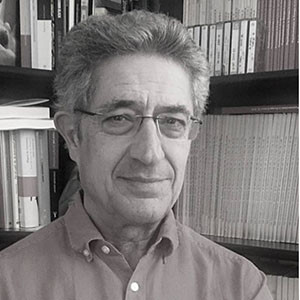
Monday Jul 13, 2020
Monday Jul 13, 2020
In this podcast for “Talks on Psychoanalysis” Antonio Pérez-Sánchez presents his paper MISUNDERSTANDINGS IN BION'S WORK: INTUITION where he explores misconceptions around intuition and how these dramatically impact the making of meaning, in the patient-analyst relationship.
Antonio Pérez-Sánchez is a psychiatrist, training and supervising analyst, and past president of the Spanish Psychoanalytical Society. He has written extensively on technical issues in psychoanalysis such as envy, psychic truth, forgiveness, and time. He is the author of five books. His last two books are The Psychotic Organization of the Personality (2018) and Interview and Indicators in Psychoanalysis and Psychotherapy. He is chair of the Sponsoring Committee of the IPA for the Portuguese Study Group, Nucleo Portuguese de Psicoanalisi, and member of the European team of the IPA-Interregional Encyclopaedic Dictionary.
Email to the author aps.nijar@gmail.com
Last published books and papers:
Interview and Indicator in Psychoanalysis and Psychotherapy (2012),Routledge
Psychotic Organization of the Personality (2018),Routledge
The body and the 'here and now' (2019), EPFAlso published in the Italian Journal Psicanalisi (2019)Vol.23. nº 1.
Link to this paperhttps://drive.google.com/file/d/1uN-OyYoBN24Kog1Gnpocn01Y4Tb_Mxm6/view?usp=sharing
This Episode is also available in Spanish
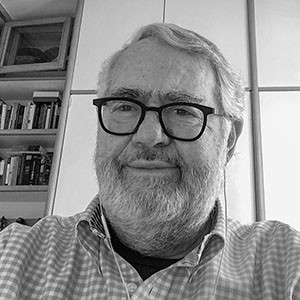
Tuesday Jul 07, 2020
Tuesday Jul 07, 2020
In today’s episode we have the opportunity to hear -from the voice of Cláudio Eizirik- his essay on the social, cultural, and political events in Brazil and the world. “Once again, The Serpent’s Egg?”, asks the author, recalling the Bergman's film that portrayed the period previous to Nazism in Germany.
Cláudio Eizirik is a full member, training and supervising analyst at the Porto Alegre Psychoanalytical Society, professor emeritus of Psychiatry at the Federal University of Rio Grande do Sul. Dr Eizirik is a former President of the International Psychoanalytical Association and of the Federation of Psychoanalytic Societies of Latin America. He received the Sigourney Award in 2011. He has published several books and his main areas of interest are on theory and practice of psychoanalysis, the process of ageing, and the relationship of psychoanalysis with culture.
Introduction recorded by Frank Andrade frankandrade70@gmail.comEtude Op. 25 no. 4 in A minor - 'Paganini' comes from https://musopen.org
This Episode is also available in Portuguese

Monday Jun 29, 2020
Monday Jun 29, 2020
In this episode, Talks On Psychoanalysis hosts an interview with William Glover, President of the American Psychoanalytic Association. He will talk with Anna Christopoulos, member of the IPA website Editorial Board, just a few days after the end of the 109TH Annual APsaA Meeting. This interview will offer us the opportunity to have an in-depth view on the current social and political situation in the United States, from the perspective of the psychoanalytical frame.
William C. Glover is President of the American Psychoanalytic Association and served as North American member of the IPA Board of Representatives, 2009-2011, and 2015-2019. He is Training & Supervising Analyst at the San Francisco Center for Psychoanalysis and lives and practices in Berkeley, California.
Anna L. Christopoulos is a member and the General Secretary of the Hellenic Psychoanalytic Society in Athens, Greece. She is Assistant Professor of Clinical Psychology at the National and Kapodistrian University of Athens, Greece.
Introduction recorded by Frank Andrade frankandrade70@gmail.comEtude Op. 25 no. 4 in A minor - 'Paganini' comes from https://musopen.org
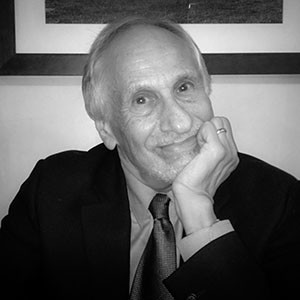
Wednesday Jun 17, 2020
Wednesday Jun 17, 2020
In today’s episode Fred Bush will speak about his new paper: Self-Criticism as a Lifeline. Thanks to his clinical vignettes and to his sharp description of the mechanisms that rule the need for self criticism, he will lead us to discover a kind of patient that is different from the one that generally manifest a sense of guilt and melancholia. We’ll see that if they’re not experiencing criticism, these patients encounter the fear of a terrifying void. Because here self criticism is a way to hold on to the primary object.
Fred Busch, Ph.D. is a Training and Supervising Analyst at the Boston Psychoanalytic Society and Institute. Dr. Busch has published over 70 articles in the psychoanalytic literature, and four books, primarily on the method and theory of treatment. He has been on numerous editorial boards. His work has been translated into ten languages, and he has been invited to present over 160 papers and clinical workshops nationally and internationally. His last two books were Creating a Psychoanalytic Mind: A Method and Theory of Psychoanalysis, published in 20014, and in in March, 2019, The Analyst’s Reveries: Explorations in Bion’s Enigmatic Concept. He is currently editing a new book: Dear Candidate: Analysts from around the world write personal letters to candidates.
Introduction recorded by Frank Andrade frankandrade70@gmail.com Etude Op. 25 no. 4 in A minor - 'Paganini' comes from https://musopen.org

Tuesday Jun 09, 2020
Tuesday Jun 09, 2020
In this new episode we’ll explore, by the voice of Hilit Brodsky, the "Eternal recurrence of the same” and the chasm between memory and forgetfulness.
Hilit Brodsky (PhD) is a clinical social worker and a training psychoanalyst at the Israel Psychoanalytical Society. She is an award winner of the Psychoanalytic Training Today Award of the IPA and a researcher of Psychoanalysis and Culture, focusing on music and musical reverie associated to Trauma. She is a faculty member on the school of Social Work in BIU, a lecturer on the psychotherapy program, Sackler School of Medicine at Tel-Aviv University and on Bar Ilan Psychotherapy program. Her edited book "criss-cross" on Art, Culture and Psychoanalysis will be published shortly.
Introduction recorded by Frank Andrade frankandrade70@gmail.com
Etude Op. 25 no. 4 in A minor - 'Paganini' comes from https://musopen.org
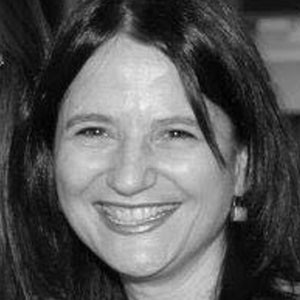
Tuesday Jun 09, 2020
Tuesday Jun 09, 2020
Merav Roth (PhD) is a clinical psychologist and a training psychoanalyst at the Israel Psychoanalytical Society. She is a researcher of Hermeneutics and Culture, focusing on the link between psychoanalysis and literature. She is the chair of the psychotherapy program, Sackler School of Medicine at Tel-Aviv University, and the former chair of the Interdisciplinary Doctoral Program in psychoanalysis and the former founder and chair of the post graduate Melanie Klein studies. Roth published various chapters in books and papers on psychoanalysis, literature and trauma.Among her recent publications, this year her book Reading the Reader – A psychoanalytic perspective on literature - was published by Routledge, 2020.
To read the entire paper.
Introduction recorded by Frank Andrade.
Etude Op. 25 no. 4 in A minor - 'Paganini' comes from https://musopen.org
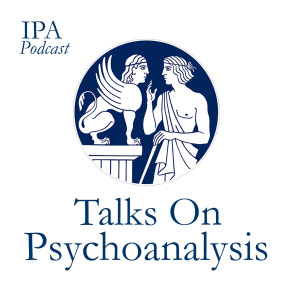
Sunday May 17, 2020
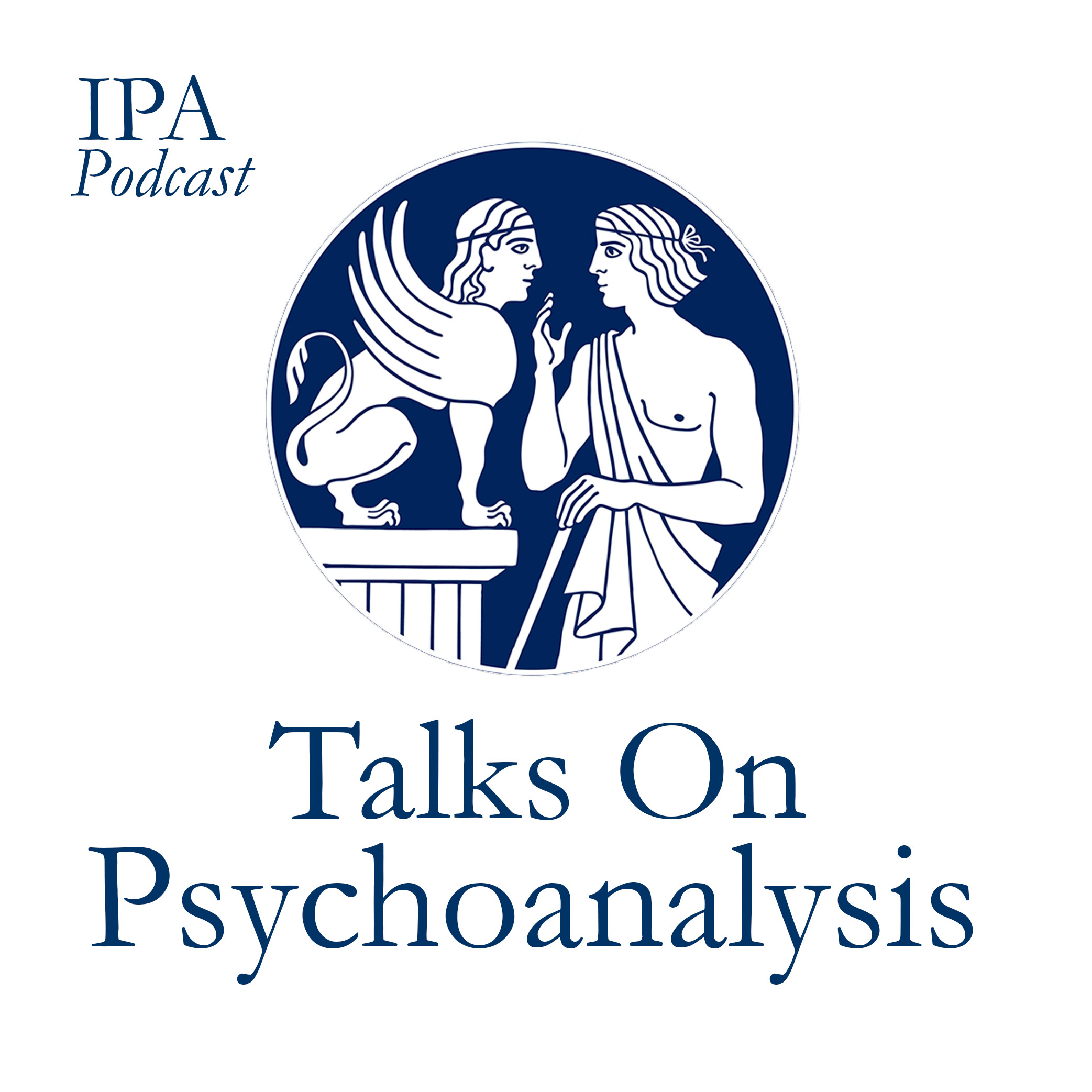
This podcast is produced by International Psychoanalytical Association
Heribert Blass, President
Katy Bogliatto, Vice President
Adela Escardó, Treasurer
Chris Heath, Communications Committee Chair
Gaetano Pellegrini, Outreach Communications Sub-Committee Chair
Florencia Biotti, Podcast Coordinator
For questions and proposals please send an email to ipatalks@ipa.world






